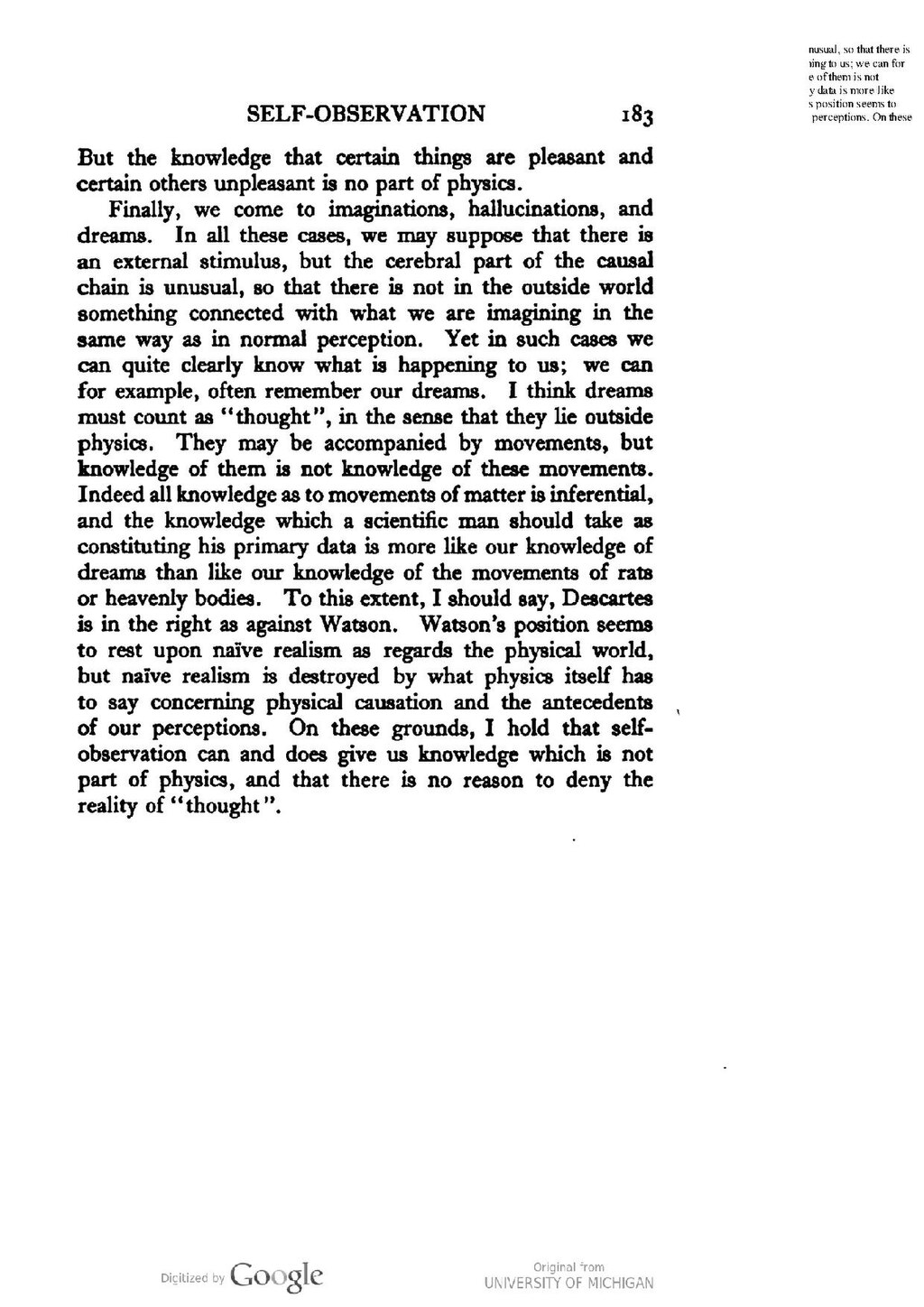But the knowledge that certain things are pleasant and certain others unpleasant is no part of physics.
Finally, we come to imaginations, hallucinations, and dreams. In all these cases, we may suppose that there is an external stimulus, but the cerebral part of the causal chain is unusual, so that there is not in the outside world something connected with what we are imagining in the same way as in normal perception. Yet in such cases we can quite clearly know what is happening to us; we can for example, often remember our dreams. I think dreams must count as "thought", in the sense that they lie outside physics. They may be accompanied by movements, but knowledge of them is not knowledge of these movements. Indeed all knowledge as to movements of matter is inferential, and the knowledge which a scientific man should take as constituting his primary data is more like our knowledge of dreams than like our knowledge of the movements of rats or heavenly bodies. To this extent, I should say, Descartes is in the right as against Watson. Watson's position seems to rest upon naïve realism as regards the physical world, but naive realism is destroyed by what physics itself has to say concerning physical causation and the antecedents of our perceptions. On these grounds, I hold that self-observation can and does give us knowledge which is not part of physics, and that there is no reason to deny the reality of "thought".
